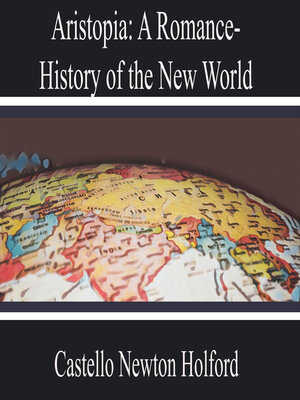
Sign up to save your library
With an OverDrive account, you can save your favorite libraries for at-a-glance information about availability. Find out more about OverDrive accounts.
Find this title in Libby, the library reading app by OverDrive.



Search for a digital library with this title
Title found at these libraries:
| Library Name | Distance |
|---|---|
| Loading... |
"Aristopia: A Romance-History of the New World is an 1895 utopian novel written by Castello Holford. It holds the distinction of being considered the first novel-length alternate history in English and is among the earliest examples of alternate histories in general1. In this captivating tale, Ralph Morton, an early settler in Virginia, stumbles upon a reef made of solid gold. Rather than squandering his newfound wealth, Morton shrewdly uses it to establish a planned society called Aristopia (derived from the Greek word for "the best place"). Drawing inspiration from Sir Thomas More's Utopia, Morton introduces his own innovations and adaptations. Here are some key features of Aristopia: Land Ownership: In Aristopia, all land is owned by the government, which then leases it to businesses and private citizens. Monopolized Trade: Large-scale trade is monopolized by the state. Wealth Limitations: Inherited wealth is limited. Productive Refugees: Morton welcomes productive refugees from European conflicts, including Huguenots, Irish fugitives, and skilled artisans from northern Italy and Switzerland. Prosperity and Expansion: The colony thrives, expands westward, and even supports the American Revolution. Eventually, Aristopia conquers Canada and comes to dominate all of North America north of Mexico. This novel offers a unique twist on the utopian genre by imagining an alternate history where the United States was founded under different circumstances, leading to a superior society in the author's own time"







